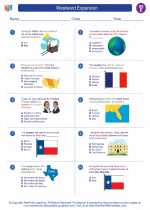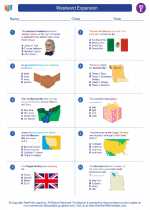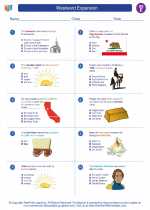Ecosystems
An ecosystem is a community of living organisms, along with non-living components of their environment, interacting as a system. These components include plants, animals, microorganisms, soil, rocks, minerals, air, water, and sunlight. Ecosystems can be as large as a desert or as small as a pond. They are constantly changing and can be affected by both natural processes and human activities.
Components of an Ecosystem
- Abiotic Factors: Non-living components such as soil, water, air, sunlight, and temperature.
- Biotic Factors: Living components such as plants, animals, and microorganisms.
Types of Ecosystems
Ecosystems can be classified into various types based on their characteristics:
- Terrestrial Ecosystems: Forests, grasslands, deserts, tundra, and more.
- Aquatic Ecosystems: Oceans, rivers, lakes, ponds, and wetlands.
- Artificial Ecosystems: Agricultural lands, urban areas, and human-made habitats.
Food Chains and Food Webs
In an ecosystem, organisms are interconnected through food chains and food webs. A food chain shows the transfer of energy and nutrients from one organism to another, while a food web depicts multiple interconnected food chains within an ecosystem.
Human Impact on Ecosystems
Human activities such as deforestation, pollution, overfishing, and urbanization can have a significant impact on ecosystems, often leading to habitat destruction and loss of biodiversity.
Study Guide
Here are some key points to focus on when studying ecosystems:
- Define what an ecosystem is and identify its key components.
- Describe the different types of ecosystems and their characteristics.
- Explain the concept of food chains and food webs and give examples of each.
- Discuss the impact of human activities on ecosystems and suggest ways to minimize this impact.
Understanding ecosystems is crucial for understanding the delicate balance of nature and the impact of human activities on the environment.
[Ecosystems] Related Worksheets and Study Guides:
.◂Social Studies Worksheets and Study Guides Fifth Grade. Westward Expansion

 Worksheet/Answer key
Worksheet/Answer key
 Worksheet/Answer key
Worksheet/Answer key
 Worksheet/Answer key
Worksheet/Answer key
